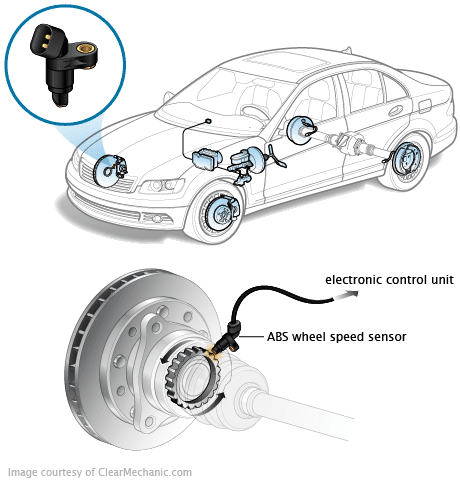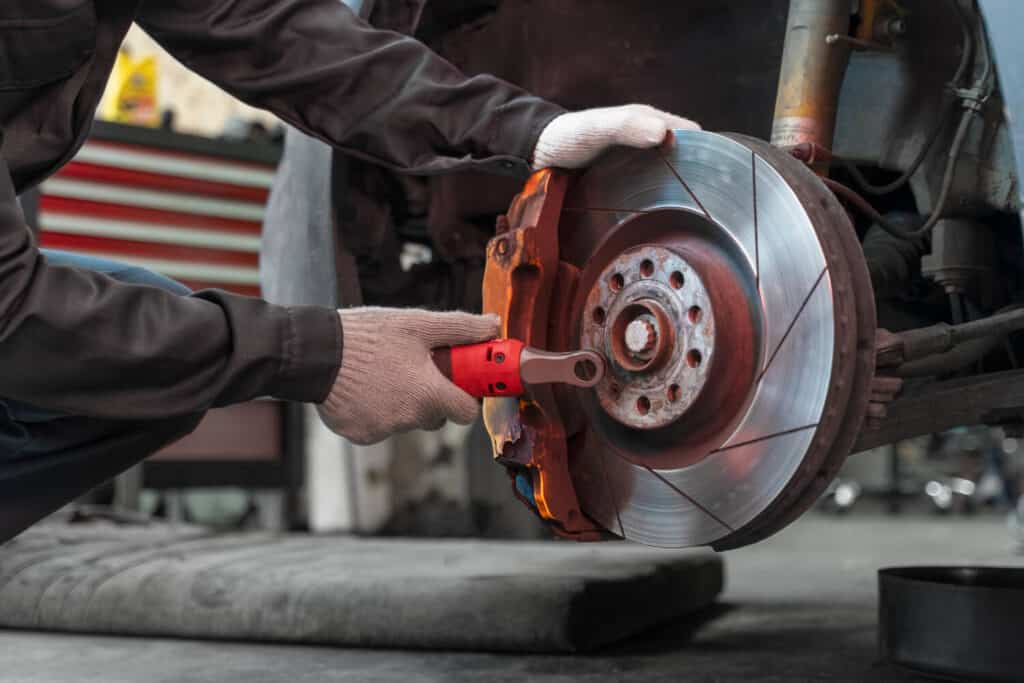What is an ABS Sensor?
An ABS (anti-lock braking system) sensor is a small device that is located near each wheel of a vehicle. It is responsible for measuring the speed of the wheels and sending this information to the vehicle’s computer to help prevent the wheels from locking up during braking.
How Much Will it Cost to Replace an ABS Sensor in Canada?
The cost of replacing an ABS sensor in Canada can vary depending on the make and model of the vehicle and the location of the repair shop. On average, the cost of parts and labour for an ABS sensor replacement can range from $150 to $300. The estimated labour time for this repair is about 1-2 hours.

What are the Symptoms of a Faulty ABS Sensor?
If the ABS sensor is faulty, the vehicle’s computer may not be able to receive accurate information about the speed of the wheels. Some common symptoms of a faulty ABS sensor include:
• The ABS warning light comes on
• The brake pedal vibrates or pulsates during braking
• The brakes lock up during sudden stops
• The vehicle pulls to one side during braking
• Reduced brake performance
How Often Does an ABS Sensor Need to be Replaced?
ABS sensors are designed to last for the life of the vehicle, but they can still become damaged or fail over time. It is recommended to have the ABS system inspected regularly during routine maintenance to ensure proper function.
How does an ABS Sensor Become Defective?
ABS sensors can become defective due to a variety of factors, including:
• Physical damage to the sensor
• Corrosion or rust buildup
• Electrical issues
• Exposure to extreme temperatures or moisture
How A Faulty ABS Sensor can affect other systems in the car?
A faulty ABS sensor can affect the performance of other systems in the vehicle, including the traction control and stability control systems. It can also impact the overall safety of the vehicle by reducing the effectiveness of the brakes during sudden stops or slippery conditions.
Is it Safe to Drive with a Faulty ABS Sensor?
It is not recommended to drive with a faulty ABS sensor as it can affect the overall safety of the vehicle. The ABS system may not function properly, causing the brakes to lock up or lose effectiveness during sudden stops or slippery conditions.

How Can I Make My ABS Sensor Last Longer?
To help extend the life of the ABS sensor, it is recommended to:
• Keep the sensors and wheels clean to prevent buildup of debris or corrosion
• Avoid driving in areas with deep water or standing water
• Have the ABS system inspected regularly during routine maintenance
• Address any electrical issues or warning lights promptly
Conclusion
A faulty ABS sensor can impact the overall safety and performance of a vehicle, so it is important to have it inspected and repaired as soon as possible if any symptoms are noticed. By taking proper care of the ABS system and addressing any issues promptly, drivers can help extend the life of the ABS sensor and ensure proper function of their vehicle’s braking system.
